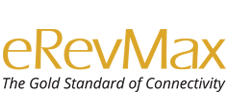With 2016 upon us, let’s take a quick look at the movers and shakers of 2015 – TripAdvisor launched its Instant Booking service, Google announced the Google Hotel Ads Commission Program, Amazon entered the travel space and Marriott acquired Starwood Hotels & Resorts Worldwide! Do these ‘events’ make predicting 2016 trends any easier? We are not sure! However, based on some industry reports and market research studies, here are some trends that we have derived for 2016 –
Less people, more data
Around 40% of the world’s population is online and they are interacting in newer ways. Internet continues to generate massive amounts of information and data. An IBM researchshows that 2.5 exabytes (that’s a whopping 2.5 billion gigabytes (GB)!) of data was generated in 2012 and this figure will get doubled by 2016. This data is a combination of all the activities happening online across platforms – desktop, tablets, laptops, mobile apps etc. A recent TripBarometer study by TripAdvisor shows that around 42% of travellers use smartphones to plan or book their trips. As technology is leading the way in hospitality, hotels need to focus on deciphering the data trends to offer the right products to travelers through the right channel.
Consolidation continues
Hospitality professionals would agree that 2015 continued to witness the consolidation trend. Over the last three years, two of the travel majors – Expedia Inc. and Priceline Group have been gobbling up one company after another. Earlier in 2015, Expedia announced to buy Orbitz for about $1.6 billion in cash following its acquisition of Travelocity. In order to gain supremacy over each other, Expedia and Priceline has spent collectively more than $7.6 billion over the last two years in various acquisitions. Regional biggies did not stay behind in the ‘merger & acquisition’ spree – Chinese online travel giant Ctrip acquired 62.4% share in eLong from Expedia. However, Marriott’s acquisition of Starwood Hotels & Resorts Worldwide was perhaps the most discussed news piece, making Marriott the largest operating hotel brand worldwide. While it’s difficult to predict who’s next, there definitely will be some more in the offing for 2016.
Guests of the Future
In a world where consumers are using multiple devices and interacting on social media platforms, it has become imperative for hotels to forge relationships with them, particularly in the digital realm. Omnipresent information and instant communication has made competition even fiercer. Hotels those are quick to respond to guests and be visible at every touch point – be it guest review sites or mobile optimized brand website, will surely be preferred over their competitors.
An eMarketer report shows that in 2013, one in four people was connected through social media – i.e. around 1.73 billion people across the globe. This number is supposed to rise to 2.55 billion by 2017. These users are actively sharing experiences and writing reviews on social sites like Facebook, Twitter and Google Plus. Hotels that are monitoring and responding to these reviews and employ innovative technologies to interact with guests will have an edge over their competitors.
With scientific use of big data and new technologies, hotels can attract modern travellers, manage daily operations effectively and provide best-in-class guest services.



